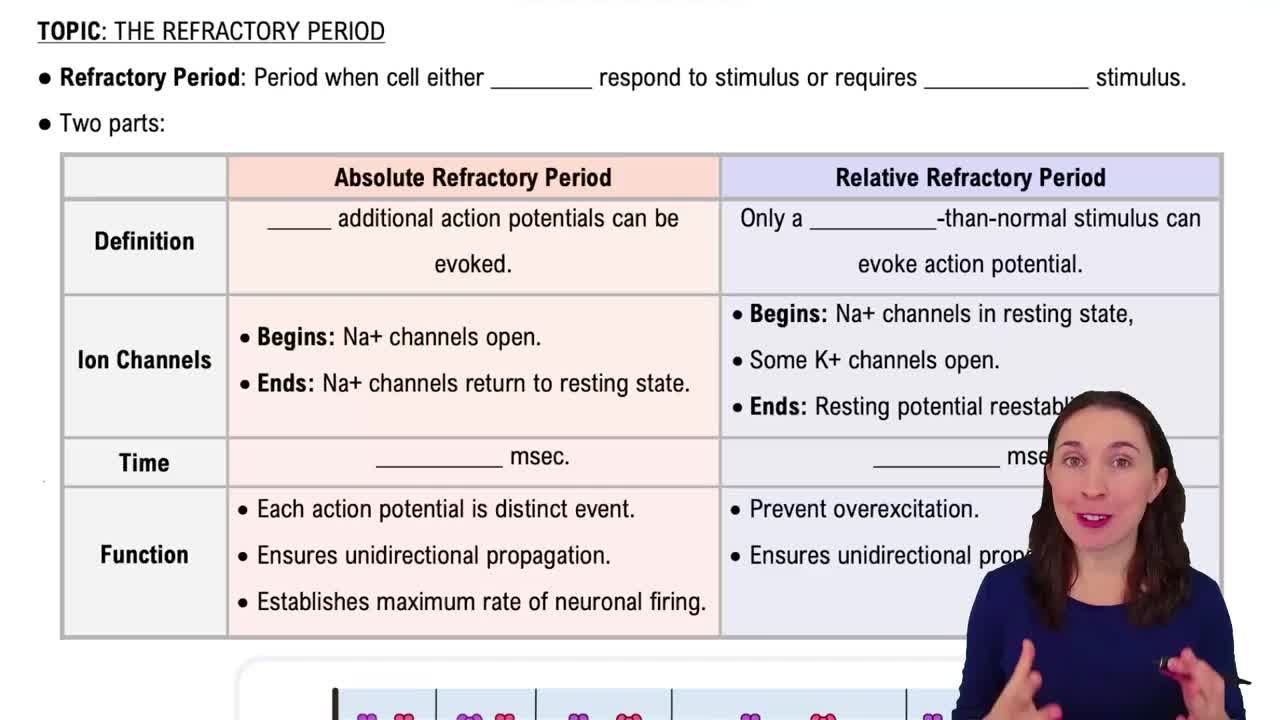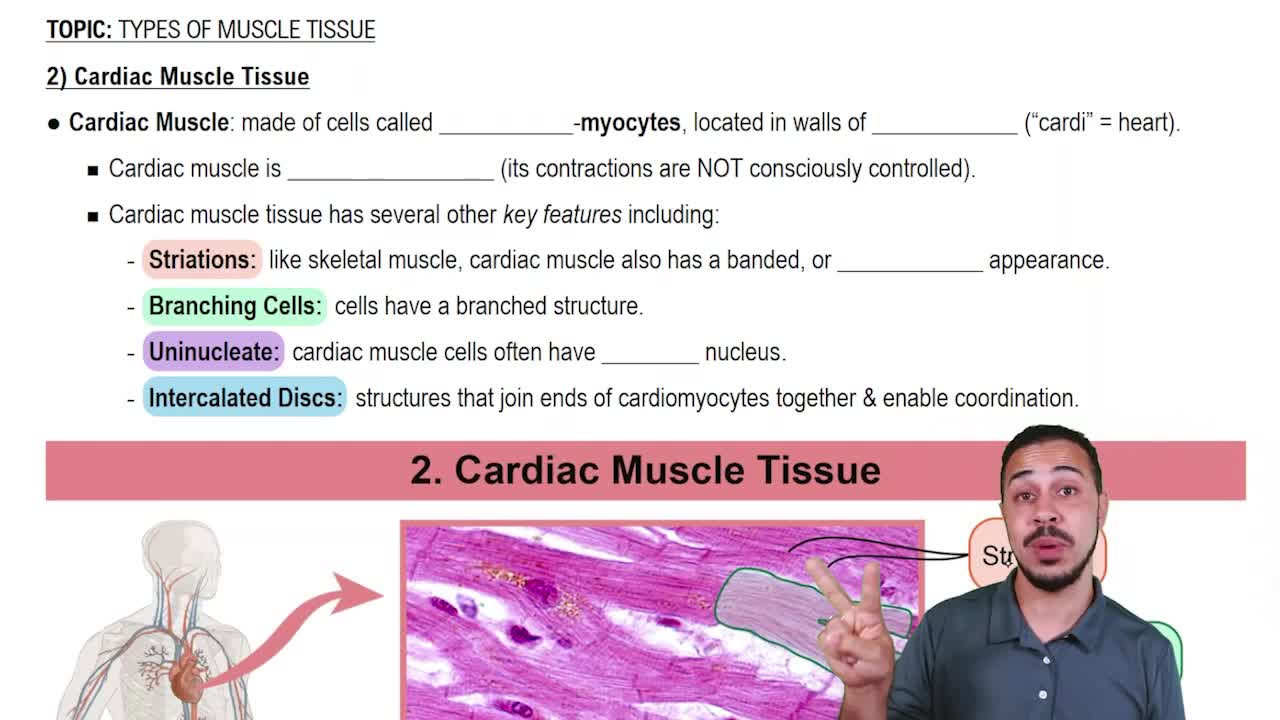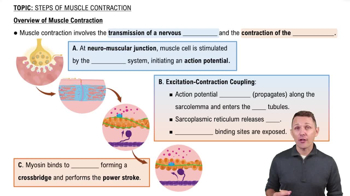Mark the following statements as true or false. If a statement is false, correct it to make a true statement.
The plateau phase in contractile cells is due to the influx of calcium ions through calcium ion channels.
 Verified step by step guidance
Verified step by step guidance Verified video answer for a similar problem:
Verified video answer for a similar problem:



 7:18m
7:18mMaster Introduction to Action Potential in Cardiac Cells with a bite sized video explanation from Bruce Bryan
Start learning